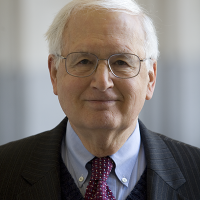This paper was originally published at the Yale Law School Paul Tsai China Center.
The United States is facing a new set of challenges in East Asia. China’s rapid economic development over the last three and a half decades has transformed its position in East Asia and the world. Its growing economic strength, military capabilities, and political influence are giving the United States a run for its money in a region of the world where we have been the dominant power for the last seventy years. In the past our dominance was sorely tested by wars in Korea and Vietnam. More recently, it has been an important factor underpinning the stability in East Asia that has permitted most of the countries of the region to focus on economic development rather than military buildups. That era may be ending as China continues to expand its military footprint in the western Pacific.
Author

Founding Director Emeritus, Kissinger Institute on China and the United States

Kissinger Institute on China and the United States
The Kissinger Institute works to ensure that China policy serves American long-term interests and is founded in understanding of historical and cultural factors in bilateral relations and in accurate assessment of the aspirations of China’s government and people. Read more





